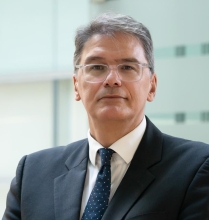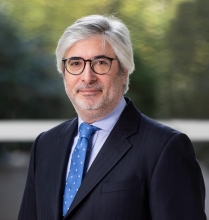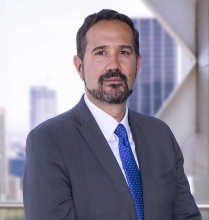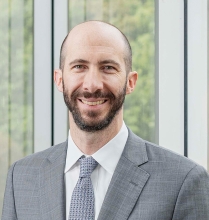International Arbitration Newsletter - May 2020 | Regional Overview: Middle East and Africa
The most relevant updates from Middle East and Africa from the global International Arbitration and ADR practice group at Garrigues.
ALGERIA
Turkish construction company found liable in hotel dispute
An ICC arbitral panel, seated in Brussels, has ordered Turkish constructor Kayi Group to pay a net sum of € 9.2 million to Algeria’s Prombati SPA in a dispute over the construction of a Marriott hotel complex in the city of Setif.
In the award, the two to one majority of the panel upheld Prombati’s arguments that Belgian law, which was the law of the seat, applied and that, under it, the arbitration agreement contained in the construction contract with one of Kayi’s subsidiary could also be enforced upon the signatory’s parent company, Kayi, although said parent company had not signed the agreement.
The tribunal held that the extension of the arbitration agreement has to be determined by the law of the seat and not by the governing law of the specific agreement or contract in dispute. In this particular case, the parties had not reached an agreement over the arbitral seat, which meant that the arbitral tribunal had to decide. Brussels was finally chosen as the seat of arbitration and, under Belgian law, the scope of the arbitration clause also included the parent company. In this context, as the Turkish subsidiary had been found liable for delays in the hotel’s construction the award held that both the subsidiary, its parent and its sister company were jointly and severally liable.
CAMEROON
The Paris Court of Appeal upholds application of OHADA over national law in annulment proceedings
The Paris Court of Appeal has decided that the change of seat undertaken by Projet Pilote Garoubé (PPG) from Garoua, in Cameroon, to Brussels pursuant to OHADA was valid even though it violated mandatory Cameroonian company law.
The Organisation pour l’harmonisation en Afrique du Droit des affaires (Organization for the Harmonization of Commercial Law in Africa - OHADA) is an international organization composed of 17 francophone African countries, created for the harmonization of business law amongst its state members, with the purpose of ensuring legal and judicial certainty for investors and companies. OHADA’s constitutive treaty states that its provisions are directly applicable and binding in the member states, notwithstanding any contrary provision of municipal law that either precedes or postdates the act.
In its decision, the Paris Court of Appeals invokes the ancient principle of primacy of international treaty provisions over municipal law, specifying that the validity of decisions adopted by Cameroonian company are governed exclusively by the provisions on that specific matter found in OHADA law and, more specifically, in OHADA’s uniform act on the law of companies.
EGYPT
Egypt is found liable for the imprisonment of an investor
A Finnish businessman, Mr. Mohamed Abdel Raouf Bahgat has been awarded US $115 million in a third party funded treaty claim against Egypt over the loss of business and his imprisonment.
In its award, the panel rejected Egypt’s jurisdictional and other procedural objections and found that the state’s actions –including the three-year imprisonment of Mr. Bahgat– amounted to both indirect expropriation and a breach of fair and equitable treatment under the Finnish-Egyptian BIT.
In 1997, Mr Bahgat won a concession to mine iron ore in the Aswan region of southern Egypt and develop a related steel production facility. He set up two companies for the project, which then entered into an international consortium led by German manufacturer Mannesmann Demag.
According to Mr. Bahgat, after having won an iron mine concession in 1997, the appointment of a new prime minister in Egypt the next year resulted in a change of attitude towards the mining project that ended with Mr. Bahgat’s arrest in 2000 on allegations that he had failed to make a US $30 million contractual payment. In addition, Mr. Bahgat was later sentenced to 15 years’ hard labour. Finally, although Mr. Bahgat’s conviction was then commuted and he was released in 2003, he was nevertheless subject to a travel ban and his assets were frozen until 2006.
Mr. Bahgat filed his UNCITRAL claim in 2011, invoking two successive Finnish-Egyptian BIT and seeking more than US$200 million in damages for the loss of his concession and other assets in Egypt.
Egypt is said to have started set aside proceedings before a Dutch court in the Hague.
United Arab Emirates
UAE port operator drops ICSID claim against Peru in exchange for a new port deal
The Emirati port operator DP World (DPW) has decided to withdraw a US $250 million ICSID claim against the Peruvian government after the parties reached an agreement to expand a port terminal in Callao, putting an end to a nine-year arbitration.
A DPW subsidiary had won a concession in 2006 to develop and operate the south pier of the port of Callao and a dispute had arisen concerning DPW’s exclusion from a later tender process for a new US $750 million north pier at the port.
This new concession had been finally awarded to DPW’s Danish rival, Maersk, in a tender process that had excluded previous concession holders from participating These terms were, according to DPW, unfair and discriminatory. Initially, DPW had requested an injunction before the Peruvian courts to stop the tender process while it was being challenged.
Although parties have not disclosed any information regarding the claim’s withdrawal, the Peruvian Ministry of Transport has announced that a US $300 million deal had been reached with DPW to expand the south pier.
In addition, the Peruvian press had reported in 2017 that DPW had contemplated starting another ICSID arbitration against Peru, this time in relation to a tariff dispute. However, sources now say that DPW has decided to hold off any commencement proceedings for the time being.
Contacts




-
+52 55 1102 3570
-
+57 601 326 69 99



